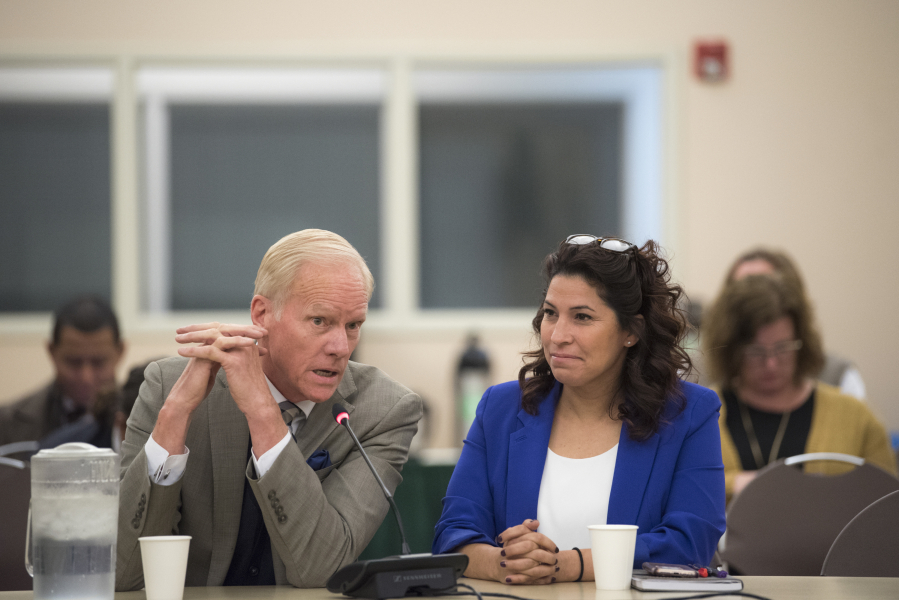Battle Ground voters, take note: Two Vancouver-area state legislators promised the Washington State Board of Education on Wednesday that they would support legislation making it easier to pass school facilities bonds.
During a legislative panel at the board’s meeting, which is happening at the Educational Service District 112 offices in Vancouver this week, Rep. Monica Stonier, D-Vancouver, and Rep. Paul Harris, R-Vancouver, said they would consider legislation allowing facilities bonds to pass by a simple majority, rather than the 60 percent supermajority currently required.
Doing so would require an amendment to the state constitution, but Stonier said she would sponsor legislation this year to begin that process.
“I think the time has passed. It’s time for us to go back to a simple majority,” Stonier said during Wednesday’s legislative panel.
“I will sign that bill,” Harris added. “I’m probably unique in my caucus.”
An amendment to the state constitution requires two-thirds support in the Legislature. Proposed amendments are then placed on the next state general election ballot and become law if approved by a majority of voters.
Battle Ground Public Schools has run three facilities bonds since 2016, citing overcrowding in classrooms and deteriorating school buildings. The effort has thrice failed, despite more than 50 percent of voters supporting the measure each time. Voters in the school district, meanwhile, approved a four-year maintenance and operations levy in 2017 with 53.7 percent of the vote. Levies require a simple majority of support.
The district’s overcrowding committee, a 29-member coalition tasked with helping to redraw campus boundaries, urged the Battle Ground school board Monday to lobby to reduce the supermajority threshold.
Battle Ground is not alone in struggling to meet the required supermajority. Preliminary results from Tuesday’s election show that of the 13 districts that ran bonds, four won. Another five, meanwhile, would have passed if only a simple majority was needed.
“Those communities are hurting,” state Superintendent of Public Instruction Chris Reykdal said of the school districts that have failed to pass bonds.
Battle Ground Superintendent Mark Ross was in the audience at Wednesday’s meeting. He said he was relieved to hear Harris, who has not historically supported efforts to drop the voter threshold, say he would sign on to legislation doing so.
“If anything came out of today, it’s good that we’ll get some traction on that,” Ross said.
McCleary funding
In the freewheeling conversation, the two legislators spoke briefly about this year’s and last year’s school funding legislation, which pushed billions of dollars into Washington’s schools. The state at last came into compliance with the 2012 McCleary lawsuit, in which the state Supreme Court ruled Washington was chronically underfunding basic education, after the 2018 session.
No mention was made of the strikes that gripped the state’s attention for weeks, especially here in Clark County, where nearly every school district’s teachers picketed.
Both said there are still conversations to be had about funding school counselors and psychiatrists, as well as addressing underfunding of special education programs.
But Stonier said after the last two years, conversations with her peers about education funding are becoming “shorter and shorter.”
“At some point, we have to back off and let things work,” Stonier said. “That doesn’t mean not engage when there are things that we can fix, but our schools, our parents, our teachers have been under such tumultuous activity from the Legislature.”
The State Board of Education will continue its meeting today from 8 a.m. to 3 p.m. at ESD 112, 2500 N. 65th Ave., Vancouver. The meeting is open to the public.




